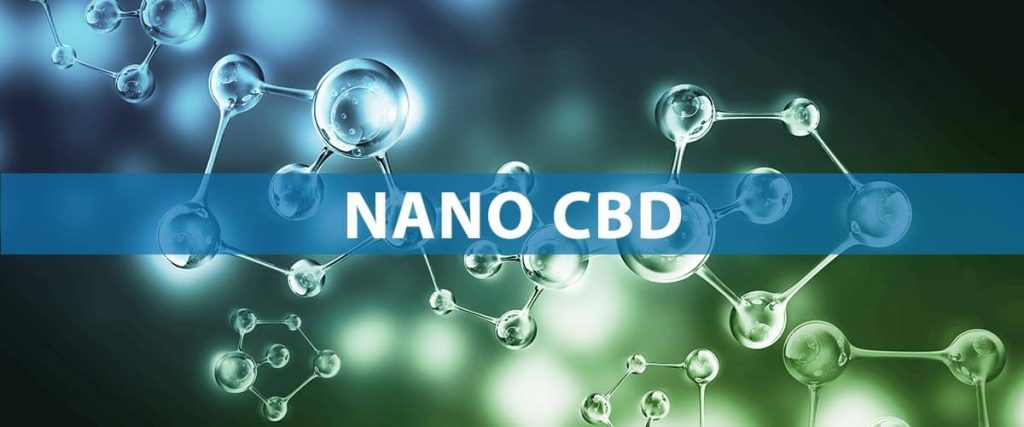
How Does Nano CBD Oil Work?
CBD has exploded in popularity, both in usage and in the media. It’s hard to open your browser without encountering some new product or a different celebrity touting CBD’s benefits (and their favorite company).
That’s why it’s important for CBD users who count on the compound to help them in their everyday lives to look past the noise and focus on the science. And the latest and most exciting advance in CBD products is Nano CBD.
WHAT IS CBD?
For those new to the world of CBD, let’s start with the basics: CBD is short for Cannabidiol. The compound is made up mostly of oil and comes from the cannabis Sativa plant. Unlike tetrahydrocannabinol (THC), it is not known for creating a high—it’s rapidly becoming celebrated as a solution for stress, anxiety, even physical recovery.
While it may be getting a lot more press lately, CBD is nothing new. The compound has been used for medical and ceremonial reasons since 750 B.C. And while CBD fans have long been convinced of CBD’s effectiveness, the general public has been skeptical…until very recently.
Mainstream science has started to take a deeper interest in CBD. The results have given more credence to its benefits and explored more efficient ways of delivering CBD to those who benefit most.
WHAT ARE THE BENEFITS?
The long list of benefits starts with decreased anxiety to better sleep and ranges even further into the treatment of post-traumatic stress disorder. The compound is definitely working for many; CBD sales have risen steadily through the start of this decade and will hit over 15 billion by 2025.
The increase in sales has brought greater scrutiny from the scientific community, which has resulted in several studies, including those for:
- Anxiety
- Sleep
- Chronic Pain/Arthritis
- Epilepsy
Anxiety: Anxiety disorders are on the rise in the United States, with some 40 million people affected each year. Several studies (and stories from CBD users) have shown that CBD has been very effective at decreasing all different kinds of anxiety. One study found it particularly good at decreasing social anxiety.
Sleep: a broad range of studies has found CBD may help treat insomnia and other sleep disorders.
Chronic Pain: CBD proponents swear by the compound’s ability to treat pain and inflammation, and science is starting to catch up. Recent studies have found a link between pain reduction and topical CBD, even for chronic pain such as arthritis.
Epilepsy: One of CBD’s biggest and brightest breakthroughs. After a number of studies, the Food and Drug Administration approved Epidiolex (purified CBD extract) to treat childhood epilepsy.
With studies like these, it should be easy to take any CBD product with confidence, right?
Unfortunately no. CBD’s booming popularity has hidden the fact that not all products, or treatments, are equal or even effective.
THE DIFFICULTY WITH CBD
The first issue with finding effective CBD treatment is the size and popularity of the marketplace. There are more products out there now than ever before, and new players enter every day.
Do your research before purchasing any CBD products. In particular, look for companies with science-forward, rigorous, and transparent methods of choosing the hemp that makes up their line.
With CBD making an appearance in so many different products now, it’s also essential to choose a company with proven methods of “delivery.” Vaping, dab pens, edibles, topicals, and tinctures are all popular ways of taking CBD. If your company of choice has proven expertise in its creation, you’ll be far more likely to receive all the benefits of CBD.
High-quality products are even more critical when you consider the chemical makeup of CBD. As effective as the compound can be, it has a very low bioavailability. Bioavailability measures the amount of a substance that circulates your bloodstream and has an effect—and natural CBD has only a twenty percent bioavailability.
So along with all of those studies—the scientific community has started looking at cutting-edge techniques to improve the quality and effectiveness of CBD.
The exciting field of nanotechnology, once the subject of far-fetched science fiction movies, is now at the forefront of some of the most significant breakthroughs in CBD.
WHAT IS NANOTECHNOLOGY?
Nanotechnology refers to any number of disciplines—science, tech, engineering—that are studied at a microscopic scale. To put nanotech in perspective, a sheet of an old-fashioned newspaper is 100,000 nanometers thick.
The importance of nanotech is multi-dimensional. But in the case of nano CBD, it comes down to the behavior of the compound at its “regular” size and its nano dimensions.
NANO CBD OIL
Since CBD is primarily oil-based, it doesn’t exactly mix well with our bodies—we’re more than two-thirds water, and our bloodstream is made up of 90% water. Oil and water don’t mix, so your body has a harder time absorbing CBD. As a result, you’re not getting the “full strength” of CBD, no matter the method you use to ingest it.
Nanotechnology utilizes bioengineering to reduce the CBD molecules to far smaller components—think, thousands of times smaller. At that scale, known as a nanoparticle, CBD behaves differently and is actually able to better mix with water. That allows for the absorption of a significantly larger percentage of the compound.
How high of a percentage? The results vary, and the science is young. Nanotech is just starting to scratch the surface of CBD. But companies who have already established themselves as leaders in the field are putting time and resources into nano CBD development.
As the scientific community catches up to the popularity of CBD and brings the same intensity of discovery as it does to other traditional pharmaceuticals, nano CBD will break new ground in the industry. Product lines will multiply and advance. As always, make sure you’re buying from a company you can trust. Be it old-fashioned products or nano- inspired and created, the ethos and rigor of the supplier will guarantee the quality.


























